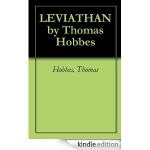|
This section contains 470 words (approx. 2 pages at 400 words per page) |

|
Part 1 Chapters 3 & 4 Summary and Analysis
In this chapter, Hobbes discusses mental discourse—a person's train of thoughts. When someone thinks, the next thought is not always random. Though people cannot always control what they think, it is certain that once they start, the second memory is usually connected to the first. This is known as mental discourse.
There are two types of mental discourse. The first is unguided and is inconstant. These thoughts are random and unrelated as usually occurs in a dream. The second type is regulated discourse. It also has two types. The first is affected by desire and the other is fear and is a chain of thoughts related to the given desire or fear. For example, someone might really want to get into Harvard, and thus imagines getting all A's in high school, being involved on campus, and volunteering...
(read more from the Part 1 Chapters 3 & 4 Summary)
|
This section contains 470 words (approx. 2 pages at 400 words per page) |

|




